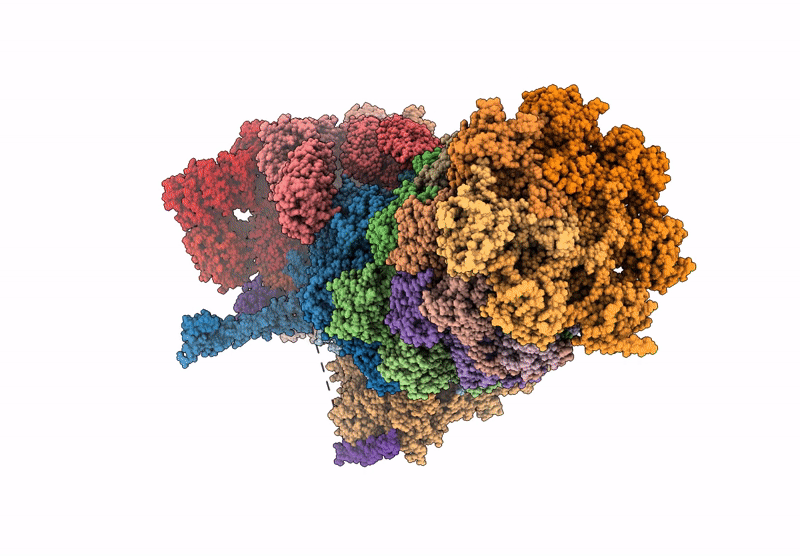
Deposition Date
2025-02-28
Release Date
2025-05-07
Last Version Date
2025-05-21
Entry Detail
PDB ID:
9NKG
Keywords:
Title:
Structure of substrate engaged MIDN-bound human 26S proteasome, EB-MIDN (Composite map)
Biological Source:
Source Organism(s):
Homo sapiens (Taxon ID: 9606)
Expression System(s):
Method Details:
Experimental Method:
Resolution:
2.80 Å
Aggregation State:
PARTICLE
Reconstruction Method:
SINGLE PARTICLE


